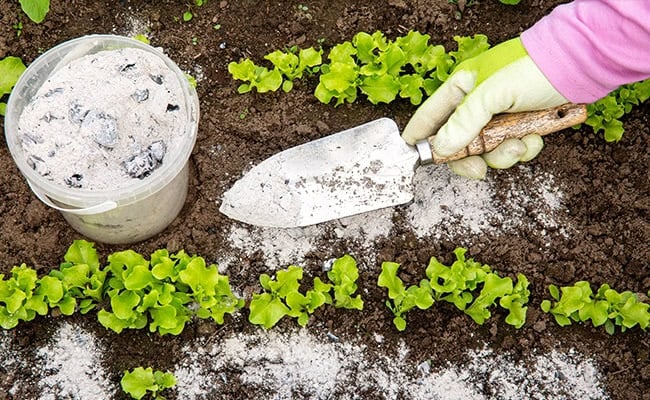Now Reading: The Ultimate Guide to Launching a Successful Fertilizer Startup
-
01
The Ultimate Guide to Launching a Successful Fertilizer Startup
The Ultimate Guide to Launching a Successful Fertilizer Startup

Growing a business from the ground up can feel a lot like nurturing a plant. It requires the right ingredients, careful planning, and a deep understanding of the environment. If you have a passion for agriculture and innovation, launching a fertilizer startup could be your path to making a significant impact. This guide will walk you through the essential steps, from finding your niche to scaling your operations, helping you plant the seeds for a thriving enterprise.
The world’s population is growing, and so is the demand for food. This puts immense pressure on farmers to produce more from the same amount of land. Modern fertilizers are a key part of the solution, but the industry is ripe for disruption. There’s a growing demand for sustainable, efficient, and specialized fertilizer products. This creates a perfect opportunity for a new fertilizer startup to enter the market with fresh ideas and innovative solutions.
Key Takeaways
- Market research is crucial: Identify a specific niche, such as organic, specialty, or smart fertilizers, to stand out.
- A solid business plan is your roadmap: It should detail your mission, financial projections, and operational strategy.
- Navigating regulations is non-negotiable: Compliance with EPA and state-level rules is essential for legal operation.
- Building a strong brand matters: A compelling brand story and effective marketing can set your fertilizer startup apart.
- Innovation drives success: Focus on developing unique products that solve real problems for farmers and gardeners.
Understanding the Fertilizer Market Landscape
Before you mix your first batch of product, it’s vital to understand the field you’re about to enter. The fertilizer industry is vast and dominated by large, established players. However, it’s also an industry undergoing significant change. Concerns about environmental impact, soil health, and sustainability are pushing consumers and farmers toward new types of products. This is where a nimble fertilizer startup can shine.
Your initial research should focus on identifying gaps in the market. Are local farmers looking for better organic options? Are urban gardeners in need of specialized liquid fertilizers for indoor plants? By understanding current trends, you can position your business to meet an unmet need rather than competing head-on with industry giants. Analyzing reports and agricultural news, like those found on Forbes Planet, can provide valuable insights into market dynamics.
Identifying Your Niche
Finding a specific corner of the market to focus on is one of the most important decisions you will make. A general-purpose fertilizer puts you in direct competition with massive corporations. Instead, consider specializing.
Here are a few potential niches for a fertilizer startup:
- Organic and Bio-fertilizers: These appeal to environmentally conscious consumers and organic farmers.
- Specialty Crop Fertilizers: Formulations designed for specific plants like orchids, citrus trees, or cannabis.
- Smart and Controlled-Release Fertilizers: Products that release nutrients slowly over time, reducing waste and environmental runoff.
- Liquid and Water-Soluble Fertilizers: Ideal for hydroponics, fertigation systems, and home gardeners.
Choosing a niche allows you to focus your research, development, and marketing efforts, making it easier to connect with your target audience and build a loyal customer base.
Crafting a Rock-Solid Business Plan
Your business plan is the blueprint for your fertilizer startup. It’s a living document that will guide your decisions and help you secure funding. It forces you to think through every aspect of your business, from your mission and vision to your financial projections and marketing strategy. A well-crafted plan demonstrates that you have a clear path to profitability and a deep understanding of the challenges ahead.
Your plan should be comprehensive and realistic. It needs to cover your company’s structure, the products you’ll offer, your target market analysis, and your operational plan. Most importantly, it must include detailed financial projections. This includes your startup costs, pricing strategy, expected revenue, and break-even analysis. This financial section is critical for convincing investors or securing a loan.
Key Components of Your Business Plan
- Executive Summary: A brief overview of your entire plan.
- Company Description: Your mission, vision, and legal structure.
- Market Analysis: Detailed research on the industry, your target audience, and your competitors.
- Products and Services: A clear description of your fertilizer products and what makes them unique.
- Marketing and Sales Strategy: How you will reach and attract customers.
- Operational Plan: Details on production, sourcing, and distribution.
- Management Team: An overview of the key people in your fertilizer startup and their expertise.
- Financial Projections: Startup costs, funding requirements, revenue forecasts, and profitability analysis.
The Science Behind Your Product: Formulation and Development
The heart of your fertilizer startup is the product itself. Developing a unique and effective fertilizer formulation is what will set you apart. This is where science, research, and a bit of creativity come together. You don’t necessarily need to be a chemist, but you do need to understand the fundamentals of plant nutrition—the roles of macronutrients (Nitrogen, Phosphorus, Potassium) and micronutrients.
Your formulation process should be driven by your chosen niche. If you are creating an organic fertilizer, you’ll be working with materials like compost, worm castings, and bone meal. If you’re developing a specialized liquid fertilizer for hydroponics, you’ll need high-purity mineral salts. The development phase involves extensive testing to ensure your product is stable, safe, and effective. Start with small batch tests and conduct plant trials to see how your fertilizer performs in real-world conditions.
Sourcing Raw Materials
The quality of your raw materials directly impacts the quality of your final product. Establishing a reliable and cost-effective supply chain is a critical operational task. You will need to identify suppliers for everything from your core nutrient ingredients to your packaging materials. Building strong relationships with suppliers can lead to better pricing and more consistent quality over time. For a fertilizer startup focused on sustainability, sourcing local and ethically produced materials can also be a powerful part of your brand story.
Navigating the Legal and Regulatory Maze
The fertilizer industry is heavily regulated to protect consumers and the environment. Navigating these regulations is a crucial step for any fertilizer startup. Failure to comply can result in hefty fines, product recalls, and even the shutdown of your business. In the United States, regulations exist at both the federal and state levels.
At the federal level, the Environmental Protection Agency (EPA) may have oversight, especially if your product contains pesticides or makes certain environmental claims. However, most fertilizer regulation happens at the state level. Each state has its own Department of Agriculture that sets rules for fertilizer registration, labeling, and tonnage reporting. You must register your product in every state where you intend to sell it.
Understanding Labeling Requirements
Your product label is a legal document. State laws dictate exactly what information must be on your fertilizer bag or bottle.
|
Required Label Information |
Description |
|---|---|
|
Brand Name |
The name you sell your product under. |
|
Product Name |
The specific name of the fertilizer. |
|
Guaranteed Analysis |
The minimum percentage of each nutrient, e.g., N-P-K. |
|
Net Weight |
The weight of the product in the package. |
|
Manufacturer Information |
Your company name and address. |
|
Directions for Use |
Instructions on how to apply the fertilizer safely and effectively. |
These requirements are non-negotiable. It’s wise to consult with a regulatory expert or lawyer who specializes in agricultural products to ensure your labels are fully compliant before you go to market.
Production and Operations: From Batch to Bag
With a formula, business plan, and understanding of the regulations, it’s time to think about production. How will you actually make and package your fertilizer? For a new fertilizer startup, you have a few options. You can start by producing it yourself in a small, dedicated facility. This gives you complete control over quality but requires a significant upfront investment in equipment.
Another popular option is to work with a co-packer or toll manufacturer. This is a company that has the equipment and expertise to produce and package your product for you, based on your formulation. This approach significantly lowers your initial capital investment and allows you to scale production up or down as needed. It’s an excellent way to get your product to market faster while you focus on building your brand and sales channels.
Logistics and Distribution
Getting your product from your facility to your customers is the final piece of the operational puzzle. Will you sell directly to consumers online (D2C)? Will you partner with local garden centers and nurseries? Or will you target large agricultural distributors? Your distribution strategy will depend on your target market and product type. E-commerce can be a great starting point for a fertilizer startup, as it allows you to reach a broad audience with lower overhead.
Building Your Brand and Marketing Your Fertilizer

A great product isn’t enough; you need to build a brand that resonates with your target audience. Your brand is more than just a logo—it’s your story, your values, and the promise you make to your customers. For a fertilizer startup, your brand could be built around sustainability, scientific innovation, or a deep connection to the local farming community.
Your marketing strategy should be designed to tell this story and reach your customers where they are. Digital marketing is a powerful tool for a new business.
Effective Marketing Channels for a Fertilizer Startup
- Content Marketing: Create blog posts, videos, and guides that help your audience grow better plants. This establishes you as an expert.
- Social Media: Use platforms like Instagram and Facebook to share beautiful images of results, customer testimonials, and behind-the-scenes looks at your business.
- Email Marketing: Build an email list to nurture leads and share special offers with loyal customers.
- Partnerships: Collaborate with garden influencers, local farm bureaus, or complementary businesses to reach a wider audience.
Focus on providing value and building a community around your brand. When customers trust you, they are more likely to buy from you.
Securing Funding for Your Fertilizer Startup
Unless you are self-funding, you will likely need to raise capital to launch and grow your fertilizer startup. The cost of research, development, equipment, and marketing can add up quickly. Your business plan will be your primary tool for attracting investors.
There are several avenues for funding:
- Bank Loans: Traditional small business loans can be an option if you have a strong business plan and good credit.
- Angel Investors: These are wealthy individuals who invest in early-stage businesses in exchange for equity. They often bring valuable industry experience.
- Venture Capital: For startups with high growth potential, venture capital firms may be interested. They typically invest larger sums of money in exchange for a significant equity stake.
- Grants: Look for agricultural or environmental grants from government agencies or private foundations that support innovation in your field.
Be prepared to pitch your business idea clearly and passionately. Investors are not just investing in a product; they are investing in you and your team’s ability to execute the vision.
Conclusion: Planting the Seeds of Success
Launching a fertilizer startup is a challenging but incredibly rewarding journey. It offers the chance to contribute to food security, promote sustainable agriculture, and build a business that makes a real difference. Success requires a blend of scientific knowledge, business acumen, and a passion for growth.
By carefully researching your market, developing a unique product, navigating the regulatory landscape, and building a strong brand, you can cultivate a thriving enterprise. Start small, stay focused on your niche, and be prepared to adapt as your business grows. The path from a simple idea to a successful company is long, but with the right preparation and dedication, your fertilizer startup can flourish.
Frequently Asked Questions (FAQ)
Q1: How much does it cost to start a fertilizer startup?
The cost can vary dramatically. A small, home-based operation selling online might start for a few thousand dollars. A larger operation with its own production facility and extensive regulatory approvals could require hundreds of thousands or even millions of dollars in initial investment.
Q2: Do I need to be a chemist to start a fertilizer company?
No, but you need access to that expertise. You can hire a consultant, partner with a chemist, or work with a formulator to develop your product. A fundamental understanding of plant science and soil health is highly recommended.
Q3: Is the fertilizer business profitable?
Yes, it can be very profitable. Margins depend on your product type, production costs, and pricing strategy. Specialty and organic fertilizers often command higher prices and offer better profit margins than conventional commodity fertilizers.
Q4: What are the biggest challenges for a new fertilizer startup?
The biggest challenges include navigating complex state and federal regulations, competing with established brands, managing a complex supply chain for raw materials, and securing the initial funding needed for R&D and production.
Q5: Can I sell my homemade fertilizer legally?
To sell it legally, you must comply with your state’s fertilizer laws. This almost always includes registering your product, having a guaranteed analysis, and following specific labeling rules, even for homemade or small-batch products.
















